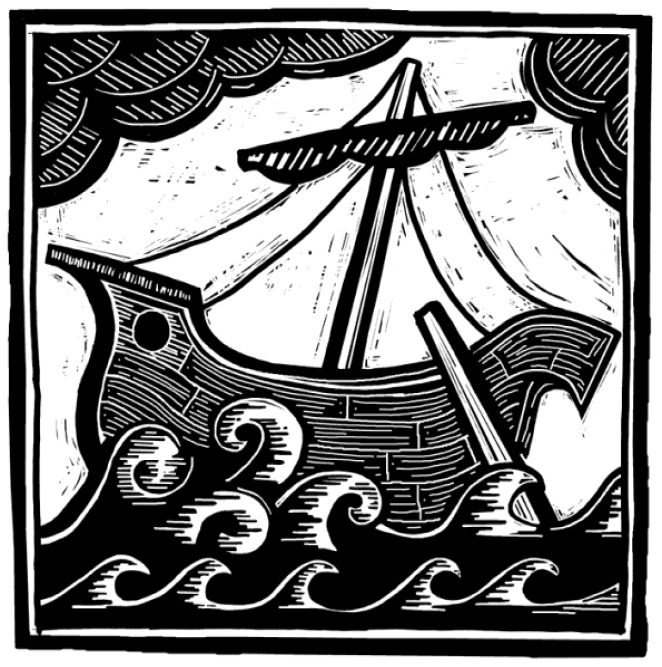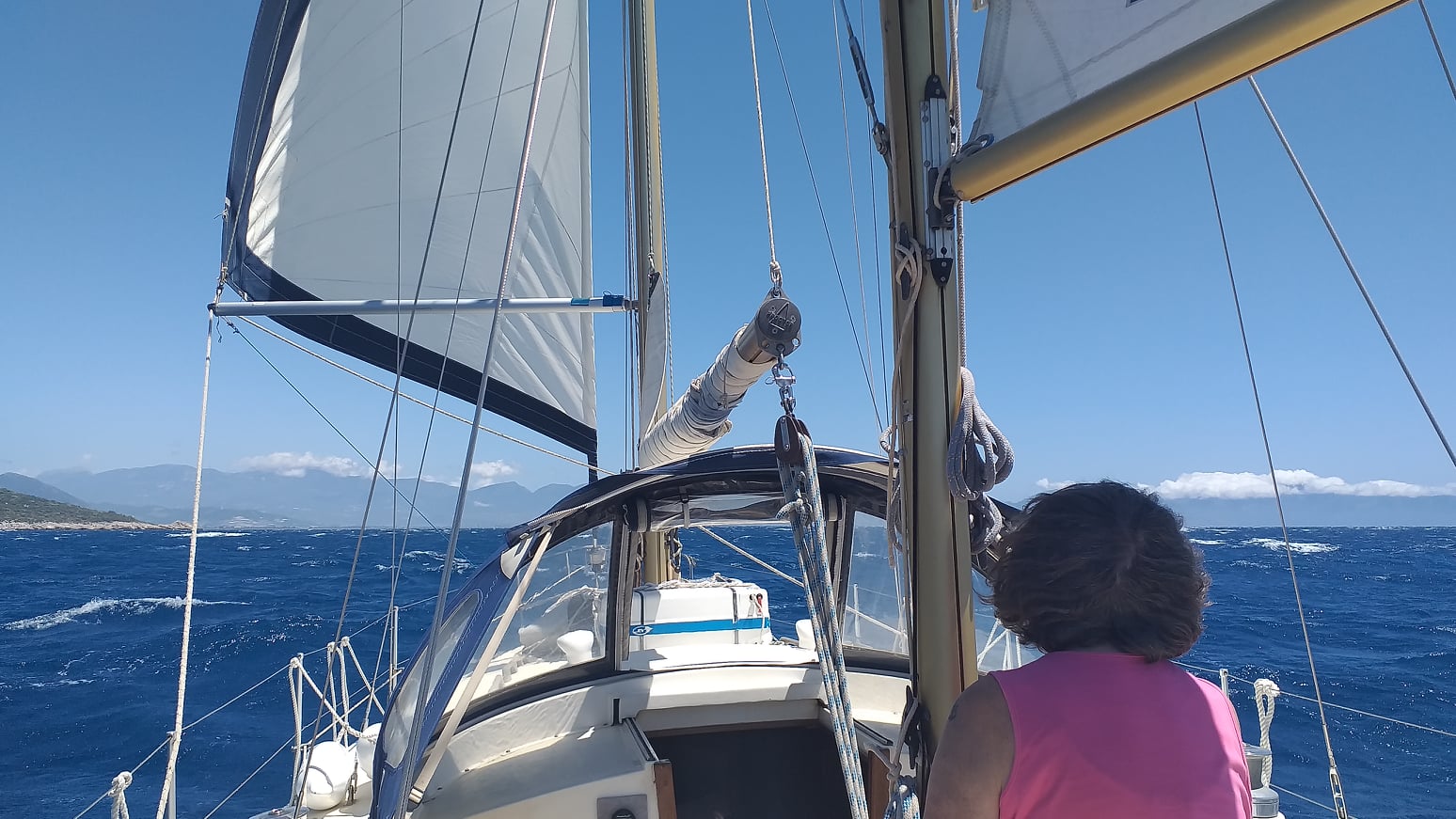Blog 3
The sun rose at precisely 6:33 am this morning. While the temperatures are still close to 100 in the day, at night now, its getting cooler. So cool in fact, that when I roll out of my bunk just before sunrise, it is downright chilly. These cool, windless mornings are the ideal times to do outside chores that reduce you to a sweating, sizzling, human lobster two hours later.

So this morning as the sun rose, I too rose to make my final attempt to fix the dingy that has outwitted me for two weeks now. Twice I bought the expensive repair kits, followed the instructions carefully, (“next press ruber with formed wod”) allowed the proper time to dry (72 hours). Twice, with great anticipation at puttering around in New Testament harbors with dry shorts, I launched the dingy. And twice now, I dejectedly watched the water slowly seep in as before. But maybe this time . . .
The dingy is important because next week I’m going to use it a lot. Tomorrow I take another two-hour dolmus ride back to Antalya (Acts 14:26) where I’ll spend some time in the Asia Minor Research Center, then return with Mark Wilson to Finike Sunday afternoon. On Monday we’ll explore some of the famous coastline between Finike and Antalya on SailingActs. I’ll explain why it is famous, and what we discovered in next week’s blog.
But let’s return to the dingy. As usual, whenever I, or anyone else along the wharf for that matter, struggle to do something alone that works a lot better with two or more people, like pulling a dingy out of the water and stowing it on deck, the passerby or boat neighbor immediately offers to help. This happened to me with the dingy several times over the past few days. Turks, Germans, Austrians, Swedes, French, Muslims, Christians, Atheists, almost all are quick to offer assistance.
As I have been calculating the amount of time Paul spent among the pagan multi-ethnic sailors and fellow travelers which I mentioned last week, and knowing how much Paul had to rely on the good will of these people, and recognizing that one’s attitude towards strangers changes when helped by them, prompted me this week to research and tabulate another imPORTant, but overlooked feature of ancient and first century prophets and philosophers. Does the geographic location of where you are born, raised, and work influence the way you look at the unknown world peopled by strangers? If so how?
I took all sixteen major and minor prophets of the Old Testament, and the eight known writers of the New Testament, 24 writers total, then selected and listed 24 of the most famous Greek intellectuals that includes philosophers, playwrights, mathematicians, and so forth.
I then researched and catalogued the most likely place of birth of all of these, as well as their place of work, using two basic categories: 1) sea port cities and towns, and 2) inland cities and towns.
The chart below summarizes the basic findings. I think these are somewhat significant. I am working on why and how these two different geographical cradles are significant for Paul, the Greeks, the Jews, and for us. Do you think where one is born, raised and chooses to live is significant? Why?
And just for fun I’ve included a superb Italian video of reconstructed Ostia, Rome’s primary seaport in the first century on the mouth of the Tiber river.


Really cool video!
But what happened to the dinghy?
BTW, you may want to create categories for your blog and tags also so that people who don’t know you but are interested in your subjects can find you.
The dingy still leaks, and I’ll work on your suggestions, thanks.
Well Linford, I think you should buy a new boat/dingy. Flash that Cash. I’m just kidding. I think where one is born and raised plays a significant role in how one will view strangers. I have my own personal experience. Thankfully I was able to learn, but it was the first time I realized I had racist tendencies. Having been raised and in Harrisonburg, specifically Park View in the Mennonite Church all of which was white. It wasn’t until I moved to Baltimore inner city for 3 months of discipleship training with the YES program, that I found I was constantly looking over my shoulder whenever I would walk the streets. I was walking in fear my first week or so…why? because of movies and TV and news that I had witnessed, basically black is dangerous. I new in my mind this isn’t right, but in my heart I felt different. I repented and have since learned not to judge people that I’m living with based on what I’ve seen in the news or movies. I don’t always do this the best, but I’m learning. I went on to have an awesome experience learning a new culture and eventually being accepted into the community.
From that first cross-cultural experience, I’ve wanted to learn and grow in learning about other cultures and peoples. Thus, my wife and I are living in Southern Chile and have been for the past 4 years.
I find it interesting that the New Testament writers and Greek Intellects almost all lived in Port towns. They would have had a much broader cross cultural insight, which would have had (I hope) a more open mind their readers. Knowing that there are more than just the people that you were raised by and lived. On a side note my Chilean friend Ricardo thinks the idea for your journey is really interesting and that you should do this study in Spanish as well.